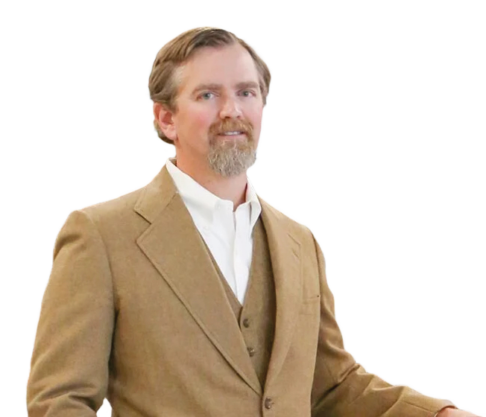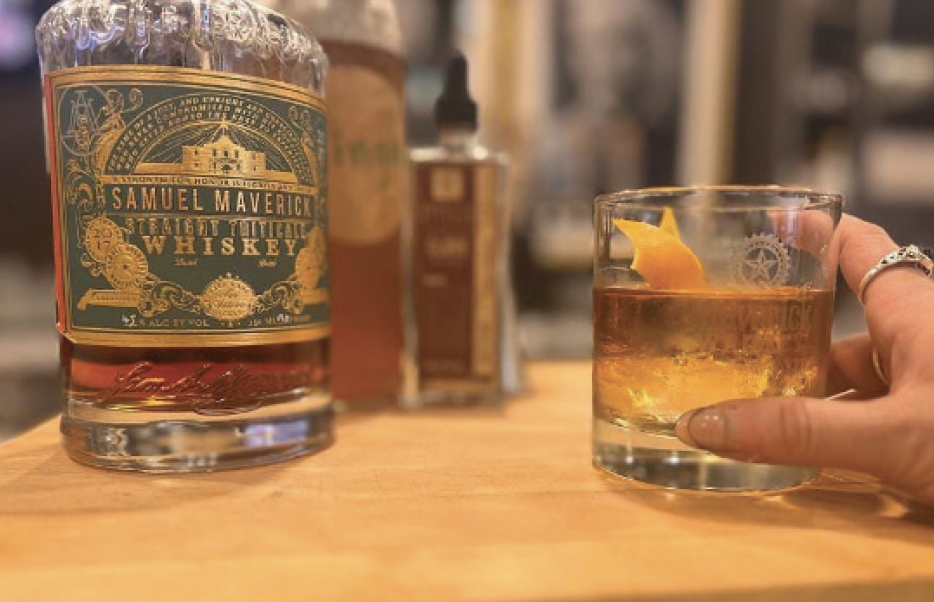Company: Maverick Whiskey
Clinical Practices: Focal Point Vision, San Antonio, and San Antonio Eye Bank
Claim to Fame: Starting a whiskey company with an old family recipe and a back porch distillery
Dr. Maverick discusses the history behind Maverick Whiskey and the importance of company culture.

CRST: You are a direct descendant of Samuel A. Maverick, a defender of the Alamo, a signer of the Texas Declaration of Independence, and a past mayor of San Antonio. How did your heritage influence the history behind Maverick Whiskey?
Kenneth J. Maverick, MD: Sam was born in South Carolina in 1803. In 1835, he was involved in a dispute with a gentleman who insulted his father. Sam shot the man in a duel and won, and then he took the man to his house and nursed him back to health.
When someone shot another prominent citizen in South Carolina back then, they had to leave town. Sam ended up in San Antonio in 1835 and was drawing maps to buy land. One of the colonels in the Texas Revolution asked him for maps to help regain San Antonio, and Sam ended up inside the Alamo. He was more of a politician than a fighter. In March 1836, two nights before the Alamo fell and his comrades died, Sam was elected by them to get help. He was the last messenger to leave the grounds. He signed the Texas Declaration of Independence. After the war, Sam started a family, built a house near the Alamo, and developed the land around it.
I was well into my medical career when I began reading the diaries kept by Sam and his wife, Mary. I also read through their family correspondence and other papers my grandmother had given me. Reading about how tough life was back then and the amazing things they did inspired me to want to do more. I was also struck by how Sam would seal a land deal with a handshake and a barrel of whiskey.
A physician friend of mine returned from Afghanistan about 10 years ago. We used an old whiskey recipe, and we set up a homemade still on my back porch. At the urging of friends, my wife, Amy, and I bought the old homestead in downtown San Antonio and started the distillery in 2017.
CRST: Did you have an interest in whiskey before you started a home distillery with your friend?
Dr. Maverick: I did. One Friday night, he and I had to see patients early the next morning and were talking about, if we had one drink, what it would be. We began discussing how we would make a whiskey based on old methods.
I call my distillery my big organic chemistry experiment. During the day, I’m killing bugs and yeast. At night, I’m keeping them warm and fed. It’s a dichotomy, but it’s been fun.
CRST: How important is company culture, and how did you establish it?
Dr. Maverick: The fields of hospitality and medicine use a similar formula. We value our employees and try to promote them from within. It’s about valuing your patients, clients, patrons, and employees and trying to position them to succeed.
CRST: What have you enjoyed the most about starting Maverick Whiskey?
Dr. Maverick: It’s been fun because my wife is my partner and we’re starting to get our kids involved. My daughter handles social media now. My wife runs human resources, and we get to spend time together. One of my sons helps with our barrel house.
It’s kind of like going to medical school and thinking someday it’s going to pay off. Picture putting something in a barrel and hoping it’s good in 10 years. We’re about 6 years in, and our whiskeys are starting to win some awards nationally and internationally. I think we’re on the right track.
I still love ophthalmology. It’s my day job and what keeps the lights on in both places, but the distillery adds interest.
CRST: Describe a day in the life of Ken Maverick.
Dr. Maverick: I get up early, operate in the morning, and then go to clinic. At around 4 pm, I pick up my wife, and we go to the distillery.
CRST: What do you find most difficult about balancing business with being in clinical practice full time?
Dr. Maverick: Clinical practice and surgery are demanding and my priority. The people on the Maverick Whiskey side must understand if I can’t make a meeting because I’m treating an emergency case.
CRST: As you mentioned earlier, Maverick Whiskey is starting to win awards, and it has become available in most of the United States. How do you define success, and have you found it yet?
Dr. Maverick: Our emphasis is on creating a high-quality product (Figure). Texas whiskeys are becoming a niche. They’re not for everyone. They have a different taste than whiskeys from Kentucky or Tennessee. As long as we’re having fun and people are enjoying our whiskey, that’s the purpose.

Figure. A cocktail made with Samuel Maverick whiskey.




